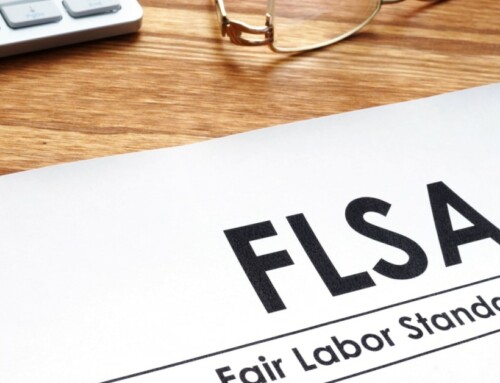How should South Carolina employers be preparing?
On Friday, December 19, 2021, the Sixth U.S. Circuit Court of Appeals lifted an injunction that prevented the Occupational Safety and Health Administration (OSHA) from enforcing its COVID-19 Emergency Temporary Standard (ETS) for employers with 100 or more employees. Parties opposing the ETS have promised to appeal the ruling. Whether the Supreme Court agrees to review the Court of Appeals’ ruling and what the outcome of any review would be is speculation. Where does this leave South Carolina employers?
Is the ETS in effect now?
Barring any future injunctions, federal OSHA has given employers until January 10, 2022, before it will issue any citations for noncompliance, and it will not issue citation for noncompliance with testing standards until February 9, 2022. However, the ETS is not yet in effect in South Carolina for the large majority of employers.
In South Carolina, we have our own state-run OSHA program. Under federal law, South Carolina is supposed to issue an ETS that is the same or equally effective as the federal OSHA ETS within 30 days of issuance by federal OSHA. So far, the state’s Labor, Licensing and Regulation Department (LLR), which runs the state’s OSHA program, has said little about what it intends to do. LLR dragged its feet adopting a federal OSHA ETS targeting healthcare workers earlier in 2021, only issuing it when federal OSHA threatened to take over enforcement in South Carolina. The Governor has also issued an executive order that requires cabinet agencies (of which LLR is one) to cooperate with the state government’s challenges to federal vaccine mandates. It is not clear how LLR will sort out these competing pressures. One way or another, however, it is likely that some form of the ETS will take effect in South Carolina.
What should my organization be doing now?
The first thing your organization should do is find out the vaccination status of your employees. You may do this by asking employees to show you their CDC vaccine cards, a pharmacy or health care provider immunization record, or a medical record showing vaccination. Employers may also accept an attestation from employees who cannot produce a vaccine card or similar record, that states their vaccine status, that they have lost or are otherwise unable to obtain the record, declaring that their attestation is true and accurate, and indicating they understand that providing false information may lead to criminal penalties. They must also attest to the best of their recollection the type of vaccine they received, the date(s) of administration, and the health care provider or clinic site that administered the vaccine.
Employers also need to be preparing a written mandatory vaccination policy that includes provisions for employees to request an accommodation for a medical condition or disability that prevents their being vaccinated, or for sincerely held religious beliefs that prevent vaccination. Employers will need to consider both how to document and how to evaluate such requests.
Where an employee is granted an accommodation, the employee is likely going to be subject to the ETS’s testing requirement. Under the ETS, employees who are not fully vaccinated and who reports to the workplace at least once every 7 days must be tested for COVID-19 at least once every 7 days. Employees who report less regularly must be tested within 7 days of their return to the workplace. Employees who refuse or miss the testing requirement must be barred from the workplace. On the other hand, employees who test positive cannot be required to submit to a test once they return to work for 90 days from the date of their positive test.
What else do I need to know?
The federal OSHA ETS contains provisions requiring employers to provide up to 4 hours paid leave for vaccination. There are also requirements for unvaccinated employees to wear face masks or face covering, and that require employers to allow employees to wear respirators (e.g., N95 masks) instead. OSHA also issued a “Mini Respiratory Protection Program” to cover the use of respirators. Until the details of the state’s version of the ETS come out, however, employers’ efforts would be better focuses on learning the vaccine status of their employees and considering how to implement a vaccine mandate policy.
Where can I go for help?
Information on the federal OSHA ETS can be found here. South Carolina LLR’s OSHA website is available here. We suggest that South Carolina employers engage with employment law counsel to guide them through this rule. The lawyers at Gignilliat, Savitz & Bettis can help you understand your organization’s obligations and develop policies and practices for compliance. Please contact us if you would like to talk with one of our lawyers.






